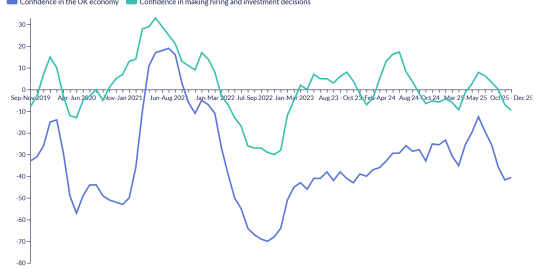Companies operating final salary pension schemes will be pleasantly surprised that the recent big falls in equity markets have not translated into worsening pensions’ balance sheets, according to Aon Consulting, the leading employee benefits and risk management firm. In fact, the aggregate deficit of the 200 largest privately sponsored schemes reduced by £13.5 billion during May, the biggest improvement since June 2009. The Aon200 deficit stood at £83.5 billion at the end of the May, compared to £97 billion at the end of April.
The reason for this apparent ‘decoupling’ of equities and pensions accounting is the interplay between schemes’ assets and liabilities: substanitial losses in the former have effectively been cancelled out by signifcant reductions in the latter, with the net result that the aggreagte pension deficit has improved signficantly to its best level since November 2009. Nevertheless, the deficit remains huge.
Liabilities are determined by the amount of money that the scheme would need to hold now in order to pay future benefits that have been promised to scheme members (most final salary benefits increase in line with inflation). This compares to the assets actually held by the scheme and any difference between the two is recorded as a surplus or deficit.
During May, the expected cost of providing future benefits reduced due to reductions in expectations of long-term inflation (despite the well documented rise in short-term inflation), meaning that liabilities fell. Long term inflation has the most effect on pension schemes because a typical scheme might expect beneftis to be paid over a period of up to 40 years.
Sarah Abraham, consultant and actuary at Aon Consulting, comments:
“Pension schemes have taken such a battering in the past 18 months that news of a reduced deficit – although its scale daunting - will be greeted with some cheer.
“It’s easy to forget that the size of a deficit is affected by movements in the scheme’s liabilities as well as movements in the assets. Changes in asset values are transparent and many individuals will have assumed that the volatility in equity markets must spell bad news for pension schemes.
“However, over the last few weeks we’ve seen investors start to reassess their expectations for future inflation. As cheaper benefit provision is anticipated, liabilities have fallen and this has gone some way to mitigate the adverse effect of asset falls.
“Market volatility continues to be a major headache for pension scheme sponsors. Companies should not underestimate the risks associated with running a defined benefit scheme and should aim to manage them in the same way as they would other operating risks. Reviewing investment strategy and considering liability reduction exercises, such as buyouts, are some of the ways to manage scheme risk.
“Scheme managers will be praying that the dream scenario of rising assets and falling liabilities is round the corner. Until then, deficits look set to remain huge by historical standards.”





